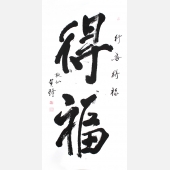Ai Weiwei's Documenta "Fairytale"
2011-04-15 12:22:53
This summer, as a part of Documenta 12, June 16-Sept. 23, 2007, the Chinese conceptual artist Ai Weiwei is mounting an incredible installation cum performance work -- he’s bringing 1,001 Chinese citizens to Kassel, the central German town where the prestigious international art show is mounted every five years.
Dubbed Fairytale -- the artist notes that Kassel was home to the Brothers Grimm from 1798 to 1830 -- the work is designed to allow the Chinese participants "to confront each other with their ordinary lives" while attending "one of the most important contemporary art events." Volunteers were selected by Ai Weiwei with an open call on his blog, and are being brought to Kassel in groups of 200 for one week each, with their airfare and lodging paid for. While international travel is typically available to upper-class Chinese, Ai Weiwei’s group includes farmers, teachers, students, artists and engineers.
What’s more, the participants in Fairytale are to be identifiable through an as-yet-unspecified "tourist uniform" designed by the artist and his team, and are required to convene once a day for a group demonstration, whose details are also as yet unannounced. Participants live communally in an abandoned factory, and are free to roam around Kassel, though they cannot leave the city. Both the artist and the participants are documenting their Fairytale experience.
The work has a price tag of over €3 million, and is sponsored up by the Swiss Leister and Erlenmeyer Foundations as well as Ai Weiwei’s primary gallery, the Galerie Urs Meile of both Lucerne and Beijing.
Ai Weiwei is perhaps best known for painting a Coca-Cola logo on a Ming dynasty vessel. His recent works show a more hands-off approach to art-making, with the artist designing a set of rules or conditions while assistants or craftspeople actually construct the work. In a recent example of this process titled Fragments, workers pieced together wooden fragments of ancient temples according to basic rules Ai Weiwei designated.
Will the Chinese visitors be easily accepted among the throngs of art lovers in Kassel? Ai Weiwei hopes that the process of "direct confrontation and enlightenment" can lead to a "most meaningful process of cultural exchange." In any case, he himself is holing up in a hotel room outside of Kassel, observing the fruits of his orchestrated social interactions through second-hand media accounts, an approach that seems to be in tune with his brand of "hands off" art-making.

 黄琦
黄琦 测试用艺术
测试用艺术
